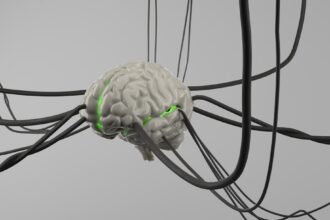Hyper independence is a term that describes an extreme form of self-reliance, where individuals feel an overwhelming need to manage everything on their own. You may find yourself in this situation if you often believe that asking for help is a sign of weakness or if you feel that relying on others will lead to disappointment. This mindset can stem from various experiences, such as childhood environments where support was scarce or past relationships that left you feeling betrayed.
As a result, you may have developed a strong belief that you must handle all challenges independently, leading to a sense of pride in your self-sufficiency. However, while independence can be empowering, hyper independence can become detrimental. It can create barriers between you and others, making it difficult to form deep connections.
You might notice that your relationships suffer because you are unwilling to share your burdens or vulnerabilities. This self-imposed isolation can lead to feelings of loneliness and emotional exhaustion, as you carry the weight of your struggles alone. Understanding hyper independence is the first step toward recognizing its impact on your life and relationships.
Key Takeaways
- Hyper independence can lead to a lack of reliance on others and an excessive need for control.
- Hyper independence can strain relationships and lead to feelings of isolation and disconnection.
- Signs of imbalance in independence include difficulty asking for help, avoiding emotional intimacy, and feeling overwhelmed by responsibilities.
- Finding balance is important for overall well-being and healthy relationships.
- Overcoming fear of dependence involves recognizing the value of interdependence and seeking support when needed.
The Impact of Hyper Independence on Relationships
When you embrace hyper independence, it can significantly affect your relationships with family, friends, and romantic partners. You may find yourself pushing people away, believing that you are better off without their help or support. This behavior can create a rift between you and those who care about you, as they may feel rejected or unneeded.
You might notice that your loved ones express frustration or confusion about your reluctance to accept assistance, which can lead to misunderstandings and resentment. Moreover, hyper independence can hinder your ability to engage in healthy partnerships. In romantic relationships, for instance, you may struggle to share responsibilities or make joint decisions.
This can create an imbalance where one partner feels overwhelmed while the other remains emotionally distant. You might also find it challenging to express your needs or desires, fearing that doing so will make you appear weak or needy. As a result, the intimacy and trust that are essential for a thriving relationship may be compromised.
Signs of Imbalance in Independence
Recognizing the signs of imbalance in your independence is crucial for personal growth and healthier relationships. One common indicator is the persistent feeling of being overwhelmed by life’s demands. If you often feel like you’re juggling too many responsibilities without any support, it may be time to reflect on your approach to independence.
You might also notice that you frequently decline offers of help or avoid asking for assistance, even when it would be beneficial. Another sign of imbalance is the tendency to isolate yourself during difficult times. If you find yourself retreating into solitude rather than reaching out to friends or family for support, this could indicate hyper independence at play.
You may also experience heightened anxiety or stress when faced with challenges, as the pressure to handle everything alone becomes increasingly burdensome. Acknowledging these signs is the first step toward addressing the underlying issues and fostering a healthier sense of interdependence.
The Importance of Finding Balance
| Aspects | Importance |
|---|---|
| Physical Health | Prevents burnout and improves overall well-being |
| Mental Health | Reduces stress and anxiety, promotes mental clarity |
| Work-Life Balance | Enhances productivity and job satisfaction |
| Relationships | Strengthens connections and fosters harmony |
| Personal Growth | Allows time for self-reflection and self-improvement |
Finding balance between independence and interdependence is essential for your overall well-being and the health of your relationships. Embracing a more balanced approach allows you to maintain your self-sufficiency while also recognizing the value of support from others. This shift can lead to greater emotional resilience and a more fulfilling life experience.
When you allow yourself to lean on others, you create opportunities for deeper connections and shared experiences. Moreover, achieving balance can enhance your personal growth. By accepting help when needed, you open yourself up to new perspectives and insights that can enrich your understanding of yourself and the world around you.
This collaborative approach fosters a sense of community and belonging, which is vital for emotional health. Ultimately, finding balance enables you to navigate life’s challenges with greater ease and confidence, knowing that you are not alone in your journey.
Overcoming Fear of Dependence
Overcoming the fear of dependence is a critical step in moving away from hyper independence. You may have internalized the belief that needing others makes you weak or vulnerable, but it’s essential to challenge this notion. Recognizing that everyone relies on others at some point in their lives can help shift your perspective.
Dependence does not equate to weakness; rather, it reflects the interconnectedness of human relationships. To confront this fear, start by reframing your thoughts about dependence. Consider the times when you’ve offered support to others and how it strengthened your bond with them.
By allowing yourself to be vulnerable and accepting help from those who care about you, you can cultivate deeper connections and foster mutual support. Embracing dependence as a natural part of life can empower you to build healthier relationships while still maintaining your sense of self.
Developing Healthy Interdependence
Developing healthy interdependence involves creating a dynamic where both parties in a relationship can rely on each other without losing their individuality.
You might begin this process by identifying areas in your life where collaboration could enhance your experiences.
Whether it’s sharing responsibilities at work or seeking emotional support from friends, recognizing opportunities for interdependence can lead to more fulfilling interactions. Communication plays a vital role in fostering healthy interdependence. Openly discussing your needs and expectations with those around you can help establish boundaries and promote understanding.
You may find it helpful to express your willingness to support others while also inviting them to support you in return. This reciprocal exchange creates a foundation of trust and respect, allowing both parties to thrive individually while growing together.
Seeking Support and Connection
Seeking support and connection is essential for breaking free from hyper independence. You might start by identifying individuals in your life who are trustworthy and supportive—friends, family members, or even colleagues who have shown genuine care for your well-being. Reaching out to these people can be a powerful step toward building a more connected life.
You may feel apprehensive at first, but remember that vulnerability often leads to stronger bonds. Consider joining groups or communities that align with your interests or values as another way to seek connection.
By actively seeking support from others, you not only enrich your own life but also contribute positively to the lives of those around you.
Practicing Vulnerability and Trust
Practicing vulnerability and trust is crucial for overcoming hyper independence and fostering deeper connections with others. You may find it challenging to share your feelings or struggles due to fear of judgment or rejection; however, embracing vulnerability can lead to profound personal growth and stronger relationships. Start small by sharing minor concerns or experiences with someone you trust; this gradual approach can help build your confidence in being open.
Trust is built over time through consistent actions and communication. As you practice vulnerability, you’ll likely notice that others respond positively by reciprocating with their own openness. This exchange creates a safe space where both parties feel valued and understood.
By cultivating an environment of trust, you not only strengthen your relationships but also empower yourself to embrace interdependence as a natural part of life.
Setting Boundaries and Prioritizing Self-Care
Setting boundaries is essential for maintaining a healthy balance between independence and interdependence. You may feel compelled to say yes to every request or obligation out of fear of disappointing others; however, it’s crucial to recognize that prioritizing your own needs is not selfish—it’s necessary for your well-being. Establishing clear boundaries allows you to protect your time and energy while still being available for those who matter most.
In addition to setting boundaries, prioritizing self-care is vital for nurturing both your physical and emotional health. You might consider incorporating activities that bring you joy and relaxation into your routine—whether it’s exercise, meditation, or spending time with loved ones. By taking care of yourself first, you’ll be better equipped to support others without feeling overwhelmed or depleted.
Embracing Collaboration and Cooperation
Embracing collaboration and cooperation can significantly enhance your relationships and overall quality of life. When you allow yourself to work alongside others toward common goals, you create opportunities for shared success and mutual growth. You might start by identifying projects or tasks where collaboration could be beneficial—whether at work or in personal endeavors—and actively seek input from those around you.
Collaboration fosters creativity and innovation by bringing together diverse perspectives and ideas. As you engage in cooperative efforts, you’ll likely discover new strengths within yourself while also appreciating the unique contributions of others. This dynamic not only enriches your experiences but also reinforces the importance of interdependence in achieving collective goals.
Cultivating a Balanced Sense of Independence
Cultivating a balanced sense of independence involves recognizing the value of both self-reliance and interdependence in your life. You may begin this journey by reflecting on your strengths and areas where collaboration could enhance your experiences. Embrace the idea that it’s okay to ask for help when needed while also celebrating your accomplishments as an individual.
As you work toward achieving this balance, remember that it’s an ongoing process rather than a destination. Life will present various challenges that may test your ability to maintain this equilibrium; however, by remaining mindful of your needs and the importance of connection with others, you’ll be better equipped to navigate these situations with grace and resilience. Ultimately, cultivating a balanced sense of independence will lead to richer relationships and a more fulfilling life experience overall.
In today’s fast-paced world, many individuals find themselves grappling with hyper-independence, a coping mechanism often rooted in past experiences of unmet needs or trauma. Healing from hyper-independence involves recognizing the importance of vulnerability and the value of interdependence in relationships. For those seeking to understand this journey better, an insightful article on the topic can be found on Unplugged Psych. This resource delves into the psychological underpinnings of hyper-independence and offers practical steps towards embracing a more balanced approach to self-reliance. To explore this further, you can read the article by visiting Unplugged Psych.
WATCH THIS! Hyper-Independence Is Not Strength
FAQs
What is hyper independence?
Hyper independence refers to an excessive reliance on oneself and a reluctance to seek help or support from others. It can lead to feelings of isolation, burnout, and an inability to form meaningful connections with others.
What are the signs of hyper independence?
Signs of hyper independence may include difficulty asking for help, a strong aversion to relying on others, a fear of being perceived as weak, and a tendency to take on too much responsibility.
How can hyper independence impact mental health?
Hyper independence can lead to increased stress, anxiety, and feelings of loneliness. It can also contribute to a lack of work-life balance and an inability to delegate tasks, leading to burnout and exhaustion.
What are some strategies for healing hyper independence?
Strategies for healing hyper independence may include practicing self-compassion, seeking support from others, setting boundaries, and learning to delegate tasks. Therapy and self-reflection can also be helpful in addressing underlying issues.




